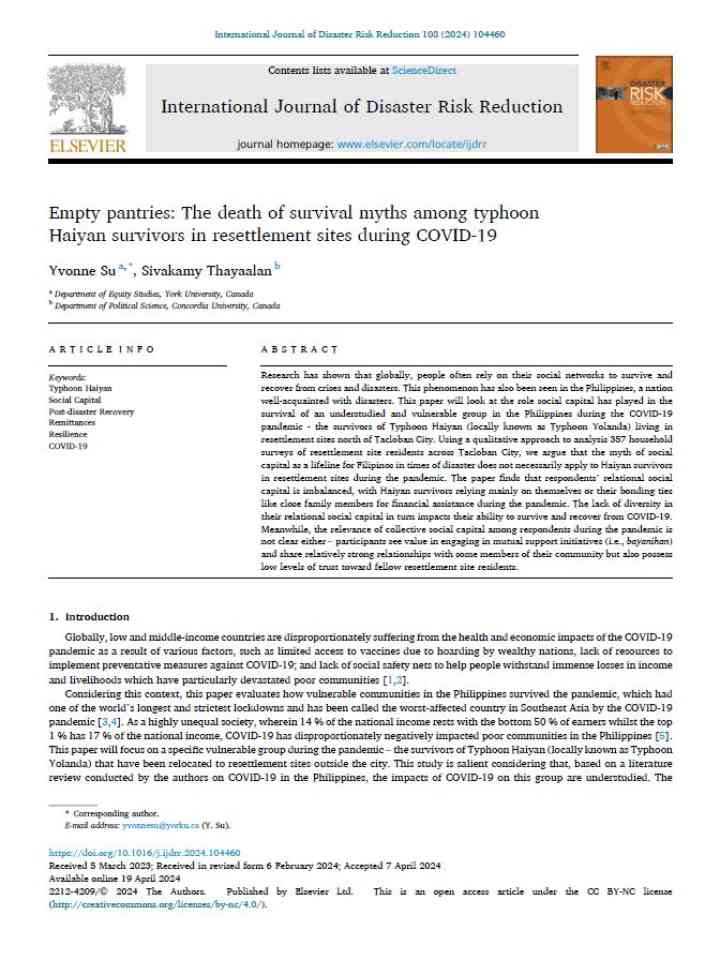Empty pantries: The death of survival myths among typhoon Haiyan survivors in resettlement sites during COVID-19
This paper looks at the role social capital has played in the survival of an understudied and vulnerable group in the Philippines during the COVID-19 pandemic - the survivors of Typhoon Haiyan (locally known as Typhoon Yolanda) living in resettlement sites north of Tacloban City. Using a qualitative approach to analysis 357 household surveys of resettlement site residents across Tacloban City, the authors argue that the myth of social capital as a lifeline for Filipinos in times of disaster does not necessarily apply to Haiyan survivors in resettlement sites during the pandemic.
The paper finds that respondents’ relational social capital is imbalanced, with Haiyan survivors relying mainly on themselves or their bonding ties like close family members for financial assistance during the pandemic. The lack of diversity in their relational social capital in turn impacts their ability to survive and recover from COVID-19. Meanwhile, the relevance of collective social capital among respondents during the pandemic is not clear either – participants see value in engaging in mutual support initiatives (i.e., bayanihan) and share relatively strong relationships with some members of their community but also possess low levels of trust toward fellow resettlement site residents.
Explore further
